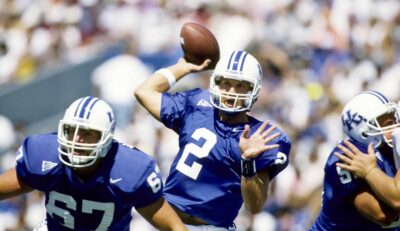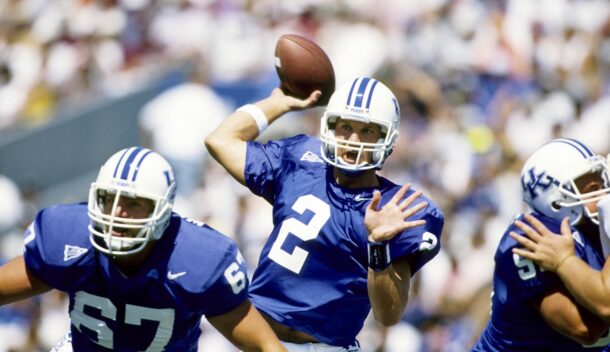
Tennessee basketball: How much should we believe in the No. 19 Vols?
By Dave Hooker
Published:
Tennessee’s basketball team began its season with sky-high expectations. That hasn’t changed. However, just about everything else has.
The Vols have battled COVID, continue to find their best rotation of players and now have to trudge on without one of their top post players, Olivier Nkamhoua, who was injured against South Carolina and will have to undergo season-ending ankle surgery.
Nkamhoua wasn’t a superstar. However, he was an important player for a frontcourt that was already thin. Nkamhoua averaged 7 points and 5 rebounds this season. Now, the Vols will have to adjust. That might mean more than just plugging in another player. It might mean the Vols have to play to their strength even more than they had previously. If you play guard for Tennessee, tighten your shoelaces.
Tennessee relies on its guard play — or has at least had to. Nkamhoua’s injury will only place more emphasis on the backcourt. The Vols have little choice but to play more guards for more minutes. No basketball season is determined in mid-February. However, Tennessee faces a cross-road that may well determine its fate in March. They have to deal with a significant injury and adapt to Nkamhoua’s absence.
Here are some factors that will go into play immediately and when the No. 19 Vols try to make a deep run in the NCAA Tournament:
What has worked
Defense has certainly worked, especially on the perimeter. Tennessee is 26th in the nation and 2nd in the SEC — behind only LSU — in points allowed per game. The Vols have given up just 63 points per contest. Guard Josiah-Jordan James has become an elite defender. If the Vols need a clutch stop, they have a better chance than other teams to get one. Fellow guard Santiago Vescovi is also a defensive force that can help when the Vols need a key stop. He’s also been incredibly consistent as younger players, like freshman guards Kennedy Chandler and Zakai Zeigler, continue to improve.
What hasn’t
Health has not been an ally this season. The Vols will now have to play without Nkamhoua just as they were getting used to having forward/center John Fulkerson back at full strength. Fulkerson, who is one of the Vols’ key players and leaders, had an extended battle with COVID in January that still affected him when he returned to the court. He has only scored in double figures once since returning. As frustrating as that was, Tennessee’s coaches should have a better idea of what to expect from Fulkerson moving forward.
What’s to come
The Vols don’t have an easy road. Fortunately, the most challenging games aren’t on the road. The Vols host Kentucky on Feb. 15 and Auburn on Feb. 26. With less than a month remaining, the clock is ticking for the Vols to find the right rotation, which will most likely be very guard-heavy.
Some like to say that Tennessee plays too slow and is too focused on playing good defense and excelling in the half-court. No, this is not a run-and-gun team and it probably won’t ever be. However, the injury to Nkamhoua could make the Vols slightly more up-tempo. Nevertheless, playing slow isn’t bad as long as it leads to winning. However, nothing less than “Showtime” will appease some.
Final postseason predictions
The go-to term of March is coming: “Guard play.” That’s what everyone likes to point to as the NCAA Tournament bracket is announced. That’s good for Tennessee. Despite some of the complaints about playing slow and some of the injuries, Tennessee is still in great shape to make a significant run in the NCAA Tournament. However, one must take into account that Tennessee coach Rick Barnes didn’t build his impressive legacy in March. Despite having over 700 wins, Barnes is 24-25 in the NCAA Tournament and has only reached the Final Four once.
Barnes’ record makes it hard to predict much more than a run to the Sweet 16. However, this team seems plenty capable of that.
Dave Hooker started covering Tennessee in 1998. He hosts an SEC radio show out of Chattanooga and covers the SEC for Saturday Down South.







